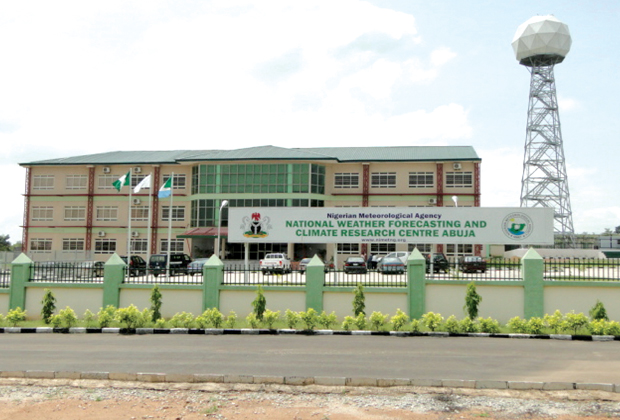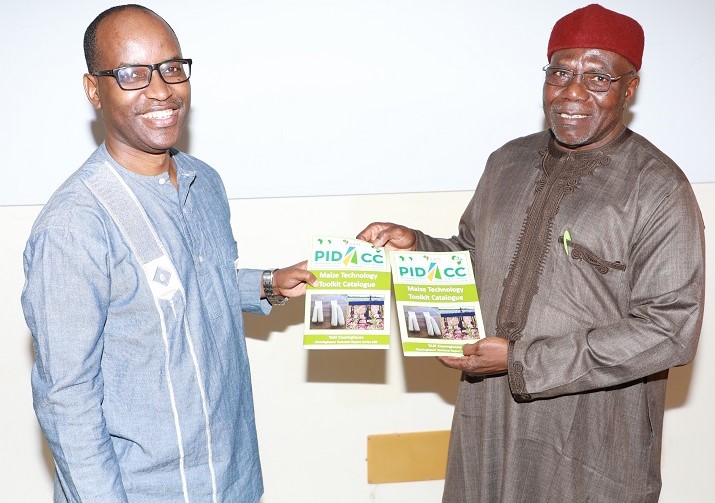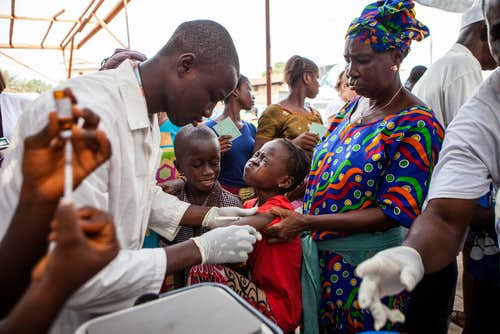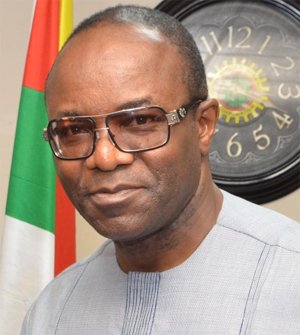
By Greg Odogwu
In today’s world, climate change has obliterated political boundaries and also redefined baseline agriculture.
For instance, how does it feel to have the whole country of Nigeria put in jeopardy whenever neighbouring Cameroon releases water from its Lagdo Dam just because its leaders lacked the vision to build buffer dams to contain such emergencies? And what of when rural farmers, bereft of emerging ideas of modern trends and challenges, do not have an inkling of what is coming to them from Mother Nature?
This is why there is urgent need for fresh paradigm in tackling the menace.
Agro-Met is a component of climate change adaptation (CCA). The project is implemented by supporting communities and local self-governments to use locale-specific climate forecasts and agri-information for decision-making.
In Nigeria, there seems to be a conscious move towards this paradigm as the country’s met office recently formed partnership with local agri-research bodies. The Nigerian Meteorological Agency (NiMet) and the Institute of Agricultural Research (IAR), Samaru, signed a memorandum of understanding for collaboration.
With this partnership, NiMet’s Seasonal Rainfall Prediction (SRP) shall get down to the rural farmers, who are actually the vulnerable sector of the society who need the information most.
All over the world, the greatest challenge of farmers today is climate change. Nigerian farmers face the same test, which is even worsened by lack of knowledge on the issue. The conditions that determine rainfall pattern over the country have become more variable due to the effects of climate change and global warming.
Farmers are more at the receiving end than other citizens because when floods recede, it is easy for other professionals to lick their wound, dust up their tools and head out to make a living. When droughts hit the land, others can afford to pack and go in search of greener terrains. But for the farmer, his whole life has gone with the waters and his blood has dried with the parched land; and things can never be the same again.
During the 2012 nationwide flood in Nigeria it was the farmers that committed suicide in their droves because they had their livelihood washed away in a twinkling of an eye. Many others developed mental illnesses out of a debilitating sense of hopelessness.
In 2012 floods which affected the 36 states of the federation were severe in 256 local government areas, with about 3,870 deaths and 363 injuries recorded from the disasters. The floods also left behind 84,679 Internally Displaced Persons registered in camps across the country. Yet, it is interesting to note that NiMet predicted the floods months ahead of the unfortunate incidents. The information did not get to the grassroots.
Sadly, this year’s NiMet SRP was not even adhered to by some rural farmers. It was gathered by experts that in spite of NiMet’s warning of delayed rainfall in 2015, many farmers went ahead to plant at their usual planting period. When asked why they made such mistake, the farmers admitted ignorance, and affirmed that they would have taken precautions if they were aware of NiMet’s warning earlier in the year.
Available data have shown that over 80 percent of Nigeria’s food is produced by farmers in the villages, 60-70 percent of whom are women. These farmers work on small plots of land and rely on rainfall for irrigation. If adequately empowered with adequate weather information and climate-resilient inputs, these smallholder farmers have the capacity to feed the nation without relapse in output as caused by climate change.
No doubt, in the country’s agricultural sector there is a missing link, and the NiMet and IAR MOU would surely set the template with which to bridge the gap. It is imperative that stakeholders build on the gains of such a historic achievement.
In developed countries where enlightenment is high, meteorological agencies just needed to broadcast via the media and the people, including farmers, take appropriate action. But over here, the farmer in the rural area most times does not have access to such met information. And when they do, they lack the capacity to interpret and assimilate. And even if they could interpret, the vital farming products that would make them climate-resilient are not at their disposal.
NiMet is the institution whose duty it is to supply Nigerians with this highly needed information about the weather.
It is to observe, analyse and provide accurate and timely meteorological information to all sectors of the economy, particularly those sectors that are sensitive to weather and climate, like farming. IAR, Samaru was established in 1924 as the research division of the Department of Agriculture for the then Northern Provinces of Nigeria.
Later, it was formally transferred by law to the newly established Ahmadu Bello University on October 14, 1962. Since its establishment, IAR has been the bed-rock of crop research and improvement in the savannah region of Nigeria. Presently, its primary mandate area is the seven states of the North West of Nigeria.
There are two strategic ways that the government must build on the gains of this NiMet/IAR partnership. Firstly, agricultural extension should be reviewed nationally and strengthened to dovetail into the efforts of NiMet in climate change adaptation. Agricultural extension means the application of scientific research and new knowledge to agricultural practices through farmer education. In Nigeria today, this crucial sub-sector is as good as dead.
According to The Extension Transformation Group, “There exists a wide extension agent-to-farm ratio in Nigeria where it is estimated that there is one extension agent to 2,500 to 10,000 farm families depending on the state.” According to another study conducted by Lucia Omobolanle Ogunsunmi of Institute of Agricultural Research, Ibadan, in 2008, “74.44 percent of the farmers surveyed had no contact with extension services for three years while only 4.8 percent were visited within a year. Only 27.4 percent were visited or had contact with extension services for 1-4 times a year.”
Secondly, NiMet’s partnership with IAR should be replicated with other agricultural research institutes across the country, and with other entities and cooperatives that directly affect rural farmers. A standing committee should be set up to speed up this process, and this could be done on a regional basis for more streamlined impact considering the nature of the potential beneficiaries.
Just as the e-wallet programme has helped Nigerian farmers to have direct access to information on fertiliser, which immensely increased their productivity; a new met-agro paradigm could be the needed elixir the country needs to catalyse a nationwide climate-smart agricultural revolution.












pls sir,how can i get daily rainfall data for calabar.